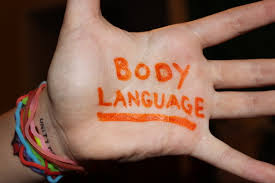 E. Earl Ellis summarizes his article on “Soma in First Corinthians” (Interpretation, 44 no 2 Apr 1990, pp 132–144) by saying,
E. Earl Ellis summarizes his article on “Soma in First Corinthians” (Interpretation, 44 no 2 Apr 1990, pp 132–144) by saying,
Paul’s concept of the “body,” so obscure for our modern way of thinking, nevertheless underlies the whole of his theology, and is decisive for understanding Paul’s teaching on ethics, sacraments, ministry, and the Christian hope. (132)
In this article he shows how ‘body’ is a significant concept in 1 Corinthians and in all Paul’s writings. Indeed, in our body-obsessed culture we need to recapture a biblical theology of the body. Ellis’s article is a helpful starting point.
Applied to the church, the term soma (“body”) is a significant metaphor (see 1 Corinthians 12:12–26) that informs the whole letter. As I argued in my sermon yesterday (“Body Life in Christ’s Household: An Overview of 1 Corinthians“), to be a member in Christ’s church is to fundamentally change the way we think about the body. Whereas the unbeliever is dead in their union with Adam (Romans 5:12–14, 18–19; 1 Corinthians 15:22), the child of God is made alive in Christ and baptized into his body (1 Corinthians 12:12–13). The implications of this union for ecclesiology—the doctrine and practice of the church—are manifold.
Following the content of 1 Corinthians we might say that when the modern individual is gripped by the reality of their union with Christ and his body, it produces unity and knocks down divisions (ch. 1–4); it produces holiness and empowers purity (ch. 5–7); it motivates love and self-sacrifice (ch. 8–11); and it builds the body in love (ch. 12–14) because individual members use their spiritual gifts for the common good of others (12:7) and not for themselves (14:4). Most significantly, when believers live self-conscious of their place in God’s body, they are ready to deny self and live in love, holiness, and unity with their brothers and sisters in Christ. In short, they display the resurrection power of God to raise the dead to manifest life as Christ’s body.
Next time you read 1 Corinthians keep an eye out for Paul’s body language. It unites the whole book. And provides a powerful antidote against selfishness and a motivation to live for the glory of God in all things.
Soli Deo Gloria, ds
Pingback: Witnessing because we love | From guestwriters